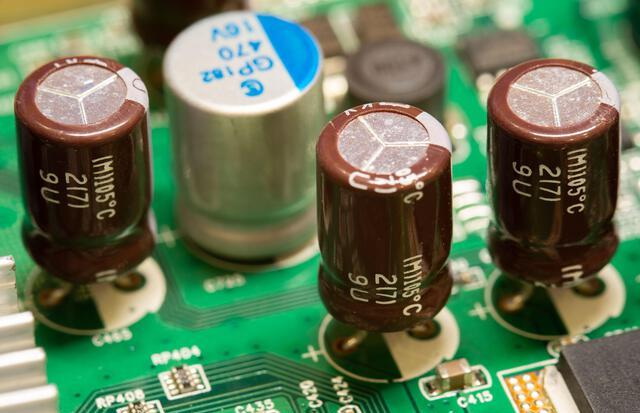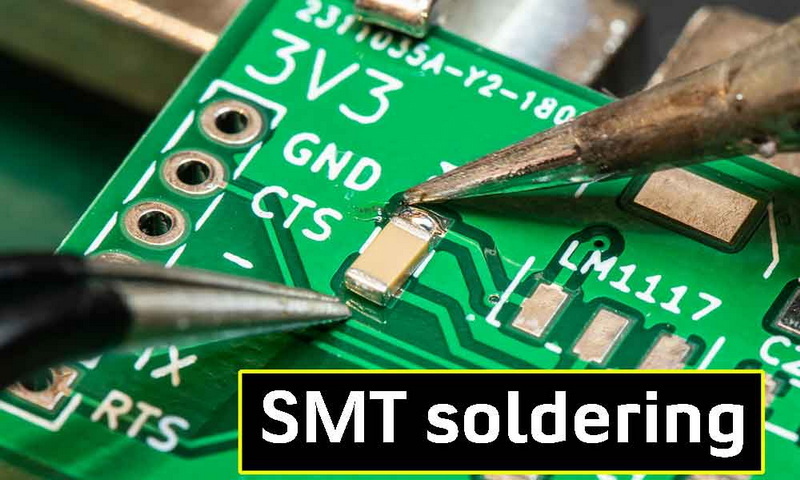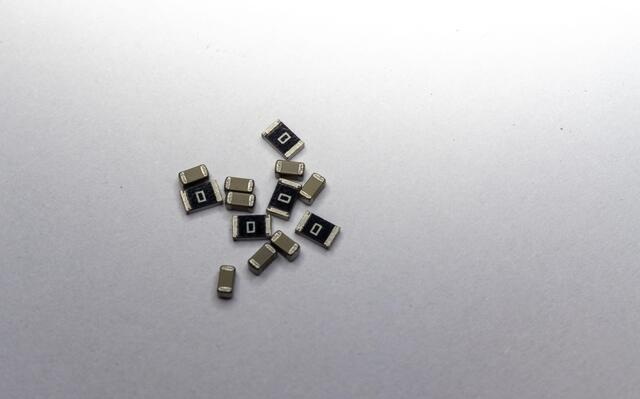Content Menu
● Introduction
● What is a Mini SMT Nozzle?
>> Key Features and Specifications
>> Different Types of Mini SMT Nozzles
● How Mini SMT Nozzles Improve PCB Assembly
>> Enhanced Precision and Accuracy
>> Increased Efficiency and Speed
>> Reduction in Defects and Errors
>> Improved Handling of Small Components
● Benefits of Using Mini SMT Nozzles
>> Cost-Effectiveness
>> Improved Product Reliability
>> Versatility in Applications
>> Enhanced Automation Capabilities
● Challenges and Solutions in Using Mini SMT Nozzles
>> Common Challenges Faced
>> Solutions and Best Practices
● The Role of Mini SMT Nozzles in Advanced Manufacturing
● Innovations in Mini SMT Nozzle Design
● Future Trends in Mini SMT Nozzle Technology
>> Increased Automation
>> Development of AI-Powered Solutions
>> Sustainability Initiatives
● Conclusion
● FAQ
>> 1. What are the main advantages of using mini SMT nozzles?
>> 2. How do mini SMT nozzles contribute to cost savings?
>> 3. Can mini SMT nozzles be used for all types of PCBs?
>> 4. What are the maintenance requirements for mini SMT nozzles?
>> 5. How do mini SMT nozzles impact the overall quality of electronic products?
● Citations:
Introduction
Surface Mount Technology (SMT) has transformed the landscape of electronics manufacturing, allowing components to be mounted directly onto the surface of printed circuit boards (PCBs). This method stands in stark contrast to traditional through-hole technology, where components are inserted into drilled holes. As the demand for smaller, more complex electronic devices continues to rise, so does the necessity for advanced tools like mini SMT nozzles. These specialized nozzles are designed to enhance the efficiency and precision of PCB assembly, making them an essential component in modern manufacturing processes.
The significance of miniaturization in PCB assembly cannot be overstated. As electronic devices shrink in size and increase in functionality, manufacturers must adapt their processes and tools accordingly. Mini SMT nozzles play a critical role in this evolution, enabling manufacturers to meet the growing demands of the electronics market while maintaining high standards of quality and reliability.

What is a Mini SMT Nozzle?
A mini SMT nozzle is a specialized tool used in pick-and-place machines that are integral to the SMT process. These nozzles are meticulously engineered to handle small components with exceptional precision. Typically constructed from durable materials such as stainless steel or ceramics, mini SMT nozzles are designed to withstand the rigors of high-speed assembly lines.
Key Features and Specifications
- Small Size: The compact design allows access to tight spaces on densely populated PCBs.
- Versatility: Capable of handling a wide range of component sizes and shapes, making them suitable for various applications.
- Precision Engineering: Designed for exact component placement, reducing misalignment and associated defects.
- Durability: Made from high-quality materials that resist wear and tear over time.
Different Types of Mini SMT Nozzles
Mini SMT nozzles come in various designs tailored for specific applications. Some common types include:
- Vacuum Nozzles: These use suction to pick up components, making them ideal for handling small and delicate parts.
- Mechanical Nozzles: These rely on mechanical grips rather than suction, suitable for larger components or those that require more forceful handling.
- Custom Nozzles: Manufacturers can design bespoke nozzles tailored to unique component shapes or sizes, enhancing flexibility in production.
How Mini SMT Nozzles Improve PCB Assembly
Enhanced Precision and Accuracy
One of the primary advantages of using mini SMT nozzles is their ability to enhance precision during component placement. Their design allows for exact positioning, which significantly reduces the likelihood of misalignment—a common issue in PCB assembly. This precision is crucial as PCBs become increasingly populated with components, where even minor placement errors can lead to significant functional issues.
Increased Efficiency and Speed
Mini SMT nozzles contribute to increased efficiency in the assembly process. They facilitate faster assembly times by minimizing the need for manual adjustments and rework. This efficiency not only accelerates production but also translates into cost savings for manufacturers by optimizing throughput.
Reduction in Defects and Errors
The use of mini SMT nozzles leads to a notable reduction in defects during assembly. By ensuring precise component placement, these nozzles minimize risks associated with soldering defects such as bridging and tombstoning. This reduction in errors is vital for maintaining product quality and reliability.
Improved Handling of Small Components
As electronic devices become more compact, they often incorporate smaller components that require precise handling. Mini SMT nozzles excel at managing these tiny parts, ensuring they are placed accurately without damage. This capability is particularly important in sectors such as telecommunications and consumer electronics, where high-density assemblies are common.
Benefits of Using Mini SMT Nozzles
Cost-Effectiveness
Investing in mini SMT nozzles can lead to significant cost savings for manufacturers. By reducing errors and improving efficiency, these nozzles help lower production costs. The initial investment is often offset by savings achieved through decreased waste and rework.
Improved Product Reliability
With precise component placement facilitated by mini SMT nozzles, the risk of electrical shorts and other failures is minimized. This leads to more reliable electronic products, essential in industries where performance and durability are critical.
Versatility in Applications
Mini SMT nozzles are adaptable for use across various PCB types and sizes. Their ability to handle different component shapes makes them suitable for a diverse range of manufacturing needs—from consumer electronics to industrial equipment.
Enhanced Automation Capabilities
The integration of mini SMT nozzles into automated pick-and-place systems enhances overall production capabilities. Automation reduces labor costs while increasing output consistency. As industries move toward Industry 4.0 practices, incorporating smart technologies with these nozzles can further streamline operations.

Challenges and Solutions in Using Mini SMT Nozzles
Despite their numerous advantages, using mini SMT nozzles does present certain challenges:
Common Challenges Faced
- Wear and Tear: The high-speed nature of SMT processes can lead to nozzle wear over time.
- Calibration Needs: Precise calibration of pick-and-place machines is necessary to accommodate the small size of mini SMT nozzles.
- Component Compatibility: Not all components are suited for handling by standard mini SMT nozzles; some may require specialized designs.
Solutions and Best Practices
To mitigate these challenges, manufacturers can implement several best practices:
- Regular Maintenance: Establishing preventive maintenance schedules can help extend the life of mini SMT nozzles.
- Quality Investments: Investing in high-quality nozzles that offer durability can reduce long-term costs associated with replacements.
- Training Programs: Providing training for operators on proper handling and maintenance techniques can further enhance performance.
- Utilizing Advanced Technologies: Employing software solutions that monitor nozzle performance can help identify wear patterns early on, allowing for timely replacements before issues arise.
The Role of Mini SMT Nozzles in Advanced Manufacturing
In advanced manufacturing environments, mini SMT nozzles play an increasingly vital role. They are essential for producing high-density interconnect (HDI) PCBs used in cutting-edge applications such as smartphones, tablets, and wearable technology. The precision offered by these nozzles ensures accurate placement even for the smallest components critical to high-performance devices.
Additionally, mini SMT nozzles contribute positively to sustainability efforts within manufacturing processes by reducing waste and improving overall efficiency—an essential aspect as companies strive to meet environmental regulations.
Innovations in Mini SMT Nozzle Design
Recent advancements in mini SMT nozzle design have further enhanced their capabilities:
- Advanced Materials: Some new designs incorporate innovative materials that offer greater durability against wear.
- Smart Technologies: Integration of smart technologies allows for real-time monitoring and adjustments during the pick-and-place process.
- Ergonomic Designs: New nozzle designs focus on user-friendliness, making it easier for operators to handle them during assembly processes without compromising performance.
These innovations respond directly to the increasing demand for precision as components continue to shrink in size while requiring more complex functionalities.
Future Trends in Mini SMT Nozzle Technology
As technology continues evolving at a rapid pace, several trends are likely to shape the future development of mini SMT nozzles:
Increased Automation
With automation becoming more prevalent across industries, we can expect further integration between mini SMT nozzles and robotic systems designed specifically for PCB assembly tasks. This will likely lead not only to improved efficiency but also enhanced adaptability across various production scenarios.
Development of AI-Powered Solutions
Artificial intelligence (AI) may play a significant role in optimizing nozzle performance through predictive analytics that anticipate wear patterns based on usage data collected over time—allowing manufacturers greater insight into when maintenance or replacements will be necessary.
Sustainability Initiatives
As manufacturers increasingly prioritize sustainability initiatives within their operations—such as reducing waste generated during production—miniature technologies like eco-friendly materials used within nozzle construction could become standard practice moving forward.
Conclusion
Mini SMT nozzles are indispensable tools within modern PCB assembly processes. Their ability to improve precision, efficiency, and reliability makes them crucial for manufacturers aiming to produce high-quality electronic products. As technology advances further, it is likely that mini SMT nozzles will continue evolving, offering even greater benefits while setting new benchmarks for industry standards.

FAQ
1. What are the main advantages of using mini SMT nozzles?
Mini SMT nozzles provide enhanced precision, reduced defects, and increased efficiency during PCB assembly due to their small size and versatility.
2. How do mini SMT nozzles contribute to cost savings?
By minimizing errors and improving overall efficiency, mini SMT nozzles help lower production costs significantly through reduced waste and rework.
3. Can mini SMT nozzles be used for all types of PCBs?
Yes, they are versatile enough to be adapted for various PCB types and sizes due to their capability of handling different component shapes effectively.
4. What are the maintenance requirements for mini SMT nozzles?
Regular cleaning and inspection are essential for maintaining optimal performance; implementing preventive maintenance schedules can prolong their lifespan.
5. How do mini SMT nozzles impact the overall quality of electronic products?
They enhance quality by ensuring precise component placement while reducing assembly errors, leading to more reliable electronic products overall.
Citations:
[1] https://www.pnconline.com/blog/the-impact-of-miniaturization-in-design-and-pcb-assembly/
[2] https://iconnect007.com/index.php/article/52613/smt-preventive-maintenance-stop-5-major-problems-with-pick-and-place-nozzles/52616
[3] https://www.pcbnet.com/blog/benefits-surface-mount-technology-smt-pcb-assembly/
[4] https://www.fivetk.com/e-news/pcb-standoffs/
[5] https://www.electronicdesign.com/technologies/eda/printed-circuit-boards/article/55041417/viasion-technology-top-5-miniaturization-challenges-in-pcb-assembly-and-their-solutions




















